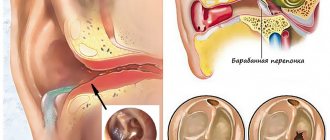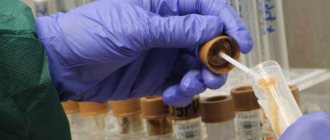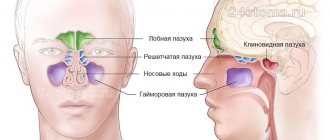Discharge from the anus indicates the presence of disturbances in the functioning of the rectum. What caused the discharge - infection, damage, neoplasm - will determine its nature. For example, purulent and mucous discharge is characteristic of inflammation. Bloody ones occur with polyps or hemorrhoids.
Mucus and pus discharged from the anus cannot be normal. Such discharge indicates the presence of infectious or inflammatory diseases in the intestines. The secretion from the anus can be of different colors, consistencies and be released in different volumes, depending on what disease caused it.
1.General information
It would seem that any person who has had a runny nose at least once is familiar with this uncomfortable sensation: somewhere in the depths of the nasopharynx, something has accumulated and interferes with every swallow, and it is necessary to get rid of it urgently, by any means... Considering that a runny nose is the most common from painful human conditions, we can safely assume: this feeling of “internal runny nose” is known to everyone, and it is known so well that there seems to be nothing to talk about here. In the end, the mucous membranes of the nasopharynx normally produce large volumes of secretion, some of which flows down the back wall, is swallowed with saliva and food, sometimes accumulates - for example, after a night's sleep - but, in general, does not create any special problems.
However, the flow of moisturizing and bactericidal mucus along the posterior nasopharyngeal wall into the laryngopharynx is not always “normal” and problem-free. It's all about the causes of hypersecretion, the composition and properties of mucus, and its quantity.
Rhinitis (runny nose) and accompanying rhinorrhea (profuse discharge of mucous discharge from the nasal passages) is, by and large, not a disease. This is a symptom, a sign of a particular pathology. Sometimes this symptom is quite expected and really does not have any particular clinical significance, but in some cases it requires special attention and examination. For such cases, a special term has been introduced, which is found in the literature in several synonymous spellings: postnasal drip syndrome (English: “postnasal drip syndrom”), retronasal drip (sometimes written “drip”), retronasal discharge, internal runny nose, postnasal syndrome. It was first described at the end of the 18th century under the name “chronic pharyngeal catarrh.”
A must read! Help with treatment and hospitalization!
Diagnostics
A proctologist deals with intestinal diseases. Already at the first appointment, the specialist is able to identify one or another cause of discharge from the anus. However, collecting anamnesis and digital examination is not enough for a comprehensive and accurate diagnosis.
Therefore, the proctologist may additionally prescribe the following types of studies:
:
- instrumental examination;
- stool tests;
- blood tests;
- endoscopic examination of the intestine;
- X-ray of the abdominal cavity and intestines;
- Ultrasound.
2. Reasons
Possible causes of hypersecretion of nasal mucus are very numerous and varied:
- acute respiratory viral infections (ARVI);
- rhinitis of allergic etiology;
- sinusitis (inflammation of the paranasal sinuses);
- foreign bodies in the nasal cavity (more common in childhood);
- long-term use of hormone-containing contraceptives, antihypertensive drugs and drugs of some other groups;
- congenital or acquired anomalies of the anatomical structure (most often a deviated nasal septum);
- adenoiditis (inflammation of hyperplastic growths of lymphoid glandular tissue);
- vasomotor rhinitis (hypersensitivity to changes in temperature, humidity, etc.);
- food allergies or ingestion of spicy, sour or other irritating foods;
- air pollution with irritants (substances or particles that irritate the mucous membrane).
In the absence of the above reasons, postnasal drip can be observed in women during gestation (so-called rhinitis of pregnant women) and in patients with gastroesophageal reflux.
Visit our Otolaryngology (ENT) page
Diseases that cause dry mouth
In some pathologies, severe dry mouth can be a symptom, in others it accompanies the course of the disease.
Inflammatory diseases of the oral cavity
With inflammation of the gums or dental diseases, the amount of saliva may decrease due to greater fluid consumption for chewing food. The same situation occurs with a bad prosthesis. The salivary glands simply do not have time to replenish their reserves.
Diabetes
Excess weight is accompanied by metabolic disorders. If you are always thirsty and your throat is “dry”, and trips to the refrigerator are becoming more and more frequent, you should check your blood sugar level and make an appointment with an endocrinologist.
“Dry mouth and thirst are the first signs of diabetes.”
Especially if the above symptoms are accompanied by repeated visits to the toilet at night.
Infections
Infectious diseases are often accompanied by vomiting and diarrhea accompanied by fever. Losing a large amount of fluid causes dry mouth, which, usually, in this condition, few people pay attention to. However, this cannot be ignored. With severe intoxication, fluid loss is an additional risk factor, so the patient needs to drink a lot. Water removes toxins from the body and replenishes fluid deficiency.
Endocrine diseases
Some endocrine diseases may be accompanied by a decrease in the amount of saliva produced, for example, thyroid dysfunction. In women, dry mouth may be associated with pregnancy or menopause.
Xerostomia in autoimmune diseases
With autoimmune diseases, a person’s defenses fail and they attack their own body. This damages the entire system. The second name for these diseases is systemic.
As a striking example, consider Sjögren's syndrome. The disease affects the salivary glands, causing dry mouth and difficulty swallowing. The oral mucosa becomes bright pink.
Xerostomia in diseases of the brain and nervous system
During a stroke, partial death of brain cells occurs; it is difficult to predict which functions will be affected. Dryness of the oral mucosa can also occur with Alzheimer's or Parkinson's disease, pathologies of the trigeminal nerve and circulatory system.
Gastrointestinal tract and dry mouth: what diseases require an appointment with a gastroenterologist
Particularly noteworthy are diseases of the gastrointestinal tract. Xerostomia is not one of the symptoms of these diseases, but may accompany them:
- A stomach ulcer, as a result of smoking or drinking alcohol, is necessarily accompanied by dry mouth.
- Gastritis, acquired through dietary abuse or as a result of stress, also does not exist without this symptom.
- Acute pancreatitis is accompanied by vomiting and diarrhea, resulting in dehydration and its symptom – xerostomia.
Gastrointestinal diseases should not be joked about, so you need to visit a gastroenterologist and start treatment.
Acute pathologies requiring hospitalization
Acute pathologies, in addition to severe pain, also cause dry mouth. Appendicitis and intestinal obstruction, as well as perforation of the ulcer, require urgent surgical intervention.
3. Symptoms and diagnosis
In addition to the interfering sensation described above, a feeling of congestion and an increased swallowing (and sometimes gag) reflex designed to “clear the throat,” retronasal drip is one of the causes of chronic cough, since excess amounts of mucus, flowing into the laryngopharynx, mechanically irritate the cough receptors. Often there is also pain in the tonsils and/or pharynx, a “lump in the throat” due to reflex swelling, and in more severe cases – dysphonia, hoarseness, and symptoms of salpingootitis.
As a rule, with an upright position of the body, the symptoms are significantly alleviated, and when lying down, especially for a long time, they worsen.
Diagnostics includes the study of complaints and medical history, a detailed examination of the ENT organs, as well as, as necessary, the use of additional research methods (endoscopic, tomographic, laboratory, etc.). In some cases, consultation with specialized specialists is necessary, for example, an allergist, an infectious disease specialist, etc.
Differential diagnosis is carried out with chronic bronchitis and other clinically similar conditions.
About our clinic Chistye Prudy metro station Medintercom page!
Mucus secretion
The following intestinal pathologies can lead to such discharge:
:
- haemorrhoids;
- Crohn's disease;
- irritable bowel syndrome;
- anal fissures;
- fistula;
- neoplasms;
- proctitis;
- intoxication (usually the discharge is watery);
- herpes in the intestines;
- dysbacteriosis;
- peptic ulcer;
- condylomas, etc.
More often, mucus is released along with feces during bowel movements. However, there are also cases of discharge between trips to the toilet. This may be due to inflammation or low sphincter tone. In a number of pathologies, the mucus may have a pinkish tint, which indicates the presence of bleeding.
4.Treatment
Depending on the diagnostic results obtained, etiotropic therapy is prescribed, i.e. measures are taken to eliminate the root cause of retronasal drip. In some cases, the primary goal is desensitization and relief of allergic inflammation (solved with medication and by minimizing contact with allergens), in others it is impossible to do without surgical restoration of normal anatomy, patency, ventilation and drainage of the nasal passages, in others, one or another strategy for the treatment of sinusitis is used , gastroenterological treatment, a course of physiotherapy, etc. are prescribed.
It is important to understand that constant and abundant flow of mucus down the back wall of the throat is not normal; this condition requires specialist consultation, examination and treatment. Effective assistance is provided in all cases.
Treatment results for mucus in stool
- Normalization of stool.
- Restoring normal digestion and absorption of nutrients.
- Elimination of the negative consequences of intestinal dysfunction (anemia, deficiency of nutrients and bioactive substances, abdominal pain, etc.).
- Prevention of relapse of the identified disease.
To make an appointment with the specialists of the First Family Clinic, contact us by phone or online to choose a date and time convenient for you to visit the doctor. Gastroenterologists of our clinic provide consultations in multidisciplinary centers in St. Petersburg, at the following addresses: Kamennoostrovsky Prospekt, 16 (Gorkovskaya metro station, Petrogradskaya metro station, Petrogradsky district), Kolomyazhsky 36/2 (Pionerskaya metro station, Udelnaya metro station, Primorsky district), Bela Kuna, 1 building 2 (metro station Mezhdunarodnaya, Frunzensky district).
Salivation during sleep
Sometimes, when a person wakes up, he notices wet spots on the pillow. This usually happens due to extreme fatigue and sound sleep. However, if salivation during sleep becomes a pattern, you should consult a doctor.
The main factors that provoke the secretion of saliva during sleep.
- Malocclusion or missing teeth. Saliva flows out because the teeth do not close completely.
- Difficulty in nasal breathing: runny nose, deviated nasal septum, colds. All this forces you to breathe through your mouth. Since the lips do not close, the accumulated fluid flows out. This is often accompanied by snoring.
- Deep sleep.
Mucus in the throat and nose with an unpleasant odor!
Foul-smelling mucus in the nose and throat is most often caused by a sinus infection (sinusitis) or postnasal drip (mucus running down the nasopharynx and into the throat). Since in these conditions a favorable environment is created for bacteria to multiply in the mucus, which leads to the addition of a foul odor or a nasty taste.
The chronic form of sinusitis manifests itself in thick discharge that has an unpleasant odor and taste. Congestion or inflammation inside the nose is a symptom of rhinitis, which most often causes postnasal drip, when mucus drains from the nasopharynx into the throat.
Thick mucus is an ideal breeding ground for anaerobic bacteria, which is responsible for strong bad breath (known as halitosis). Dentists say that brushing your teeth does not eliminate bad breath caused by mucus draining from the nasopharynx.
Foul-smelling mucus associated with a temporary cold or allergic reaction can be effectively treated with a variety of home remedies that focus on loosening, thinning, and drying out the secretions. A known method to eliminate the problem is to drink plenty of warm drinks, such as soups and herbal teas.
Treating the sources of excess mucus production and eliminating the proliferation of anaerobic bacteria that thrive in this type of environment is the best way to prevent and eliminate mucus or bad breath associated with draining into the nasopharynx.
Although rare, some may experience green or black crusts inside the nose that bleed and produce a foul odor. This is a sign of a disease such as chronic atrophic rhinitis (ozena).
Sinusitis is a common cause of an inflamed and blocked nasal passage, and can produce foul-smelling mucus. This is a condition in which the lining of the sinuses becomes inflamed. The inflammation and swelling is usually caused by a viral infection and often improves within two or three weeks.
This is a very common disease. In temperate climates, the disease affects about 5-15% of the adult population every year.
Sinuses (paranasal sinuses) are small air pockets that are located in the forehead, cheekbones and eyes.
They protect the body by capturing microbes. Bacteria or allergens can cause too much mucus to be produced, which can block the sinuses from opening. So most people will experience a runny nose when they have a cold or allergies.
The buildup of mucus can promote the growth of germs in the sinus cavity, leading to bacterial or viral infections. Most are viral and may clear up in a week or two without treatment. The accumulation of secretions in the nasal passage and throat can cause bad breath and foul-smelling mucus.
Corticosteroid drops or spray may be used to treat such inflammations. Corticosteroids, also called steroids, are a group of medications that can help reduce inflammation. If swelling or inflammation persists, your doctor may prescribe another treatment option.
Other symptoms, such as a stuffy nose, can be treated by applying a warm compress, and the pain can be relieved with painkillers. Antibiotics may sometimes be used to treat a mild bacterial infection that accompanies sinus inflammation.
Signs and symptoms:
- Thick and greenish nasal discharge
- Nasal congestion that causes difficulty breathing
- Pain, swelling, tenderness and pressure around the eyes, cheeks, nose and forehead
- Strong headache
- Ear pressure
- Fever and fatigue.
Tonsillitis
Another possible cause is tonsillitis, an inflammation of the tonsils, the oval pads of tissue at the back of the throat. Symptoms of the disease include swollen tonsils, sore throat, difficulty swallowing and tender lymph nodes on the sides of the neck.
Tonsillitis is often caused by a virus, and a bacterial infection can sometimes cause swelling. The correct treatment depends on the underlying cause of the disease. Therefore, to receive proper treatment, it is necessary to establish a diagnosis quickly and accurately. A doctor may recommend surgery when bacterial tonsillitis occurs too frequently, does not respond to other treatment options, or has other serious complications.
Inflammation may affect other areas of the throat, such as the adenoids and lingual tonsils. There are different variations of the disease: acute, recurrent and chronic. In all three variants, sore throat and problems with swallowing are observed.
Postnasal drip
Nasopharyngeal drip, also known as postnasal drip, occurs when the nasal mucosa is oversecreted. Excess mucus accumulates in the throat or back of the nose. It is responsible for hydration and also helps to trap and destroy foreign organisms such as bacteria and viruses before they can cause infection.
With normal secretion, mucus is invisible, it mixes with saliva and flows harmlessly behind the throat, and the person swallows it. When the body produces more of it and it becomes thicker than usual, it becomes more noticeable. This usually occurs during inflammation, most often during rhinitis.
The accumulated mucus also provides a good breeding ground for bacteria that cause bad odor. When excess secretion comes out of the nostrils, it causes a runny nose as it flows down the back of the throat - called postnasal drip.
The problem can be caused by colds, flu, allergies, sinus infections, pregnancy, or changes in weather.
Depending on the diagnosis, possible treatments include:
- Antibiotic to treat bacterial infection
- Surgery in cases of chronic sinusitis
- Medicines and spray against allergies
- Antacid when gastroesophageal reflux disease is the problem.
Nasal polyps
Nasal polyps are soft, painless, irregular growths on the lining of the nose. They occur as a result of chronic inflammation due to asthma, recurrent infections, allergic reactions and sensitivity to drugs or immune disorders.
Small polyps are asymptomatic, but large polyps or a group of polyps can lead to breathing difficulties due to blockage of the nasal passage, and in some cases also loss of the sense of smell and frequent infections. Although they are more common in adults, they can affect a person at any age.
Your doctor may prescribe medication to shrink or eliminate nasal polyps, but surgery is sometimes required to remove them. They may return frequently even after consistent treatment. Unlike polyps that form in the colon or bladder, nasal polyps are rarely cancerous. They are also not painful to the touch.
Symptoms:
- Runny nose
- Annoying snoring
- Decreased sense of smell
- Severe headaches and facial pain
- Pain in upper teeth
- Postnasal drip.
Inflammatory nasal discharge in adults with odor
In adults, a common cause of foul-smelling mucus is rhinitis, which is an inflammation of the nasal passage. This condition is known to cause a runny nose and nasal discharge.
Rhinitis can be temporary, when it is caused by an allergic reaction, or chronic, when symptoms last more than six weeks. In moderate cases of congestion, the condition may improve on its own; in chronic or severe cases, it is necessary for a doctor to diagnose the condition and prescribe treatment.
In an adult, another common cause of the problem may be sinusitis - inflammation of the sinuses. Sinuses are air-filled cavities located behind the forehead, eyes, cheekbones, and bridge of the nose. They filter the air you breathe, using mucus to trap dirt, bacteria, and other potentially harmful particles.
The sinuses become inflamed or swollen during infections or allergic reactions. The accumulation of mucus creates a favorable environment for bacteria to grow and multiply, resulting in a foul-smelling bacterial infection.
A sinus infection is manifested by the following symptoms:
- Nasal congestion
- Bad breath
- A sore throat
- Thick yellow or green mucus that appears in the nose or throat
- Cough, especially at night
- Dulling of taste and smell.
Mild cases of the problem in adults may improve on their own. In severe cases caused by allergic rhinitis, sinusitis or postnasal drip, immediate medical attention is recommended. People with allergies or a weak immune system are most likely to develop a sinus infection.
Treatment involves not only monitoring and managing symptoms, but also getting rid of the underlying cause of the disease. For allergic rhinitis or sinus inflammation, it is important to have a doctor diagnose the problem and prescribe the necessary medications. In this way, the risk of complications can be minimized.
After a medical examination, treatment will depend on the underlying cause of the disease or the severity of symptoms.
Antibiotics
Sinusitis caused by a viral infection does not require antibiotic treatment. For a bacterial infection, an oral antibiotic may be used. It can be suspected if there is facial pain, nasal discharge that resembles pus, and other symptoms that persist for more than a week. Infection may also be suspected when the condition does not respond to other medications.
Acute bacterial infection is treated with antibiotic therapy. Antibiotics work by killing or preventing the growth of bacteria that can cause a sinus infection. When they are used for treatment it is necessary to remember that:
- The number of days you use antibiotics depends on your overall health
- The choice of drug depends on the body's reaction to it
- The medication may be used with another drug such as a decongestant
Decongestant
A nasal spray can quickly help relieve congestion and swelling. There are many such products on the market.
But they also have their drawbacks, due to which they cannot be used for more than a few days. Most decongestant sprays contain the preservative benzalkonium chloride, which causes toxic reactions in the nose, eyes, ears and lungs and can worsen the symptoms of allergic rhinitis. Thus, a drug with this substance in its composition will be effective immediately, but when the symptoms return within a day or two, they will be worse than before use.
Nasal steroid spray
Nasal steroid sprays are commonly used medications that are used to relieve swelling in the nose. The medicine can also be used for allergies such as hay fever. Steroid sprays are also good for relieving symptoms of inflammation caused by other conditions.
A nasal corticosteroid spray reduces swelling and mucus in the nasal passage. It may also be effective in relieving associated symptoms, such as a runny nose, sneezing, congestion, itching, or swelling of the nasal passage.
Painkiller anti-inflammatory drugs
Paracetamol, aspirin, ibuprofen and other NSAIDs can be used to help combat the fever and headaches that may accompany swelling and inflammation. Various brands of pain relievers can be found in pharmacies.
Surgery for chronic sinusitis
Sometimes surgery may be performed due to a complication of sinusitis, which may include the formation of pus in and outside the sinus. The purpose of the operation is to drain the sinuses:
- Removing infected, swollen or damaged tissue
- Removing swollen bone to create a wider opening to drain mucus from the sinuses
- Getting rid of formations inside the nose
- Removing a foreign object blocking the nasal passage.
Surgery does not always completely correct the problem, and some people will require a second operation. When treating a swollen, infected nasal passage, the surgery becomes more effective when used in conjunction with another medication.
Folk remedies
Peppermint oil.
It is suitable for oral and topical use and has antimicrobial properties. Along with lavender, peppermint oil may be one of the most versatile essential oils in the world.
Drinking warm liquids can also help keep your body temperature normal.
and relieve some cold symptoms, such as sneezing and runny nose.
Salt.
You can also try gargling, or even better, rinsing the nasopharynx with salt. It has strong antibiotic, anti-inflammatory and antiseptic properties that help fight bacterial infections in the mouth.
Ginger.
Although the root of this plant does not help stop the discharge process itself, it can help get rid of the mucus that remains after the disease has been treated. It is an ancient remedy that has been used in many cold and cough medicines.
Raw honey.
It is an antibacterial, anti-inflammatory and antifungal home remedy. It also contains antioxidants and flavonoids, and not only reduces mucus secretion, but also soothes irritated airways.
This article is for informational purposes only. An otolaryngologist at the Company’s Polyclinic can tell you in more detail about the prevention of ENT diseases (mentioned in this publication).
In your free time, call the call center at 8 (495) 356 3003 and make an appointment with an otolaryngologist.
The clinic "Innovative Technologies" LLC thanks you for
that you took the time to read this information.
Esophageal stricture
If esophagitis continues for too long, the resulting scar tissue can narrow the esophagus. This stricture can lead to difficulty passing and swallowing food, which can become stuck at the level of scar tissue, causing pain.
Large pieces of food may become stuck and this situation may require endoscopic intervention to remove them. The stricture may cause frequent choking when eating. Because of this, patients often refuse to eat and lose a lot of weight.
Stricture is treated by widening or stretching the esophagus (bougienage or dilatation). These treatment procedures can have multiple effects on the stricture. But taking stomach acid blockers (proton pump inhibitors, PPIs, or H2 blockers) may prevent scarring in the esophagus from returning in the future.









